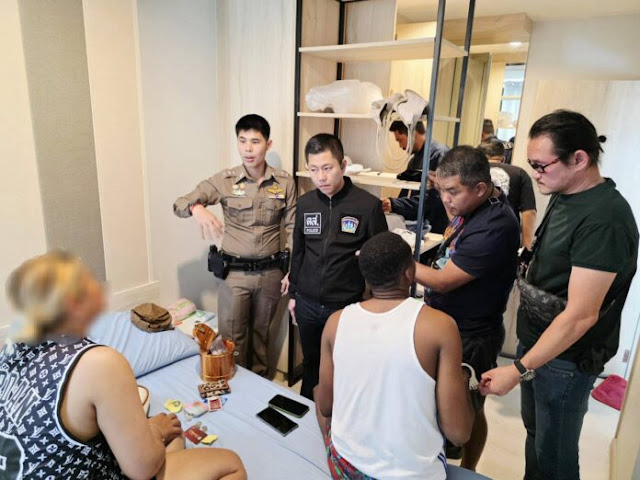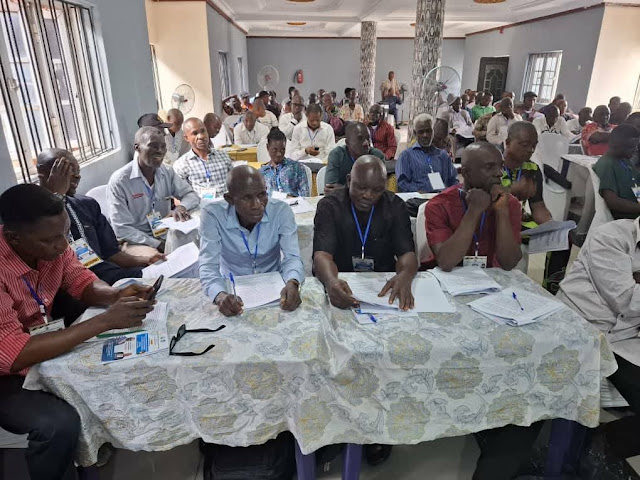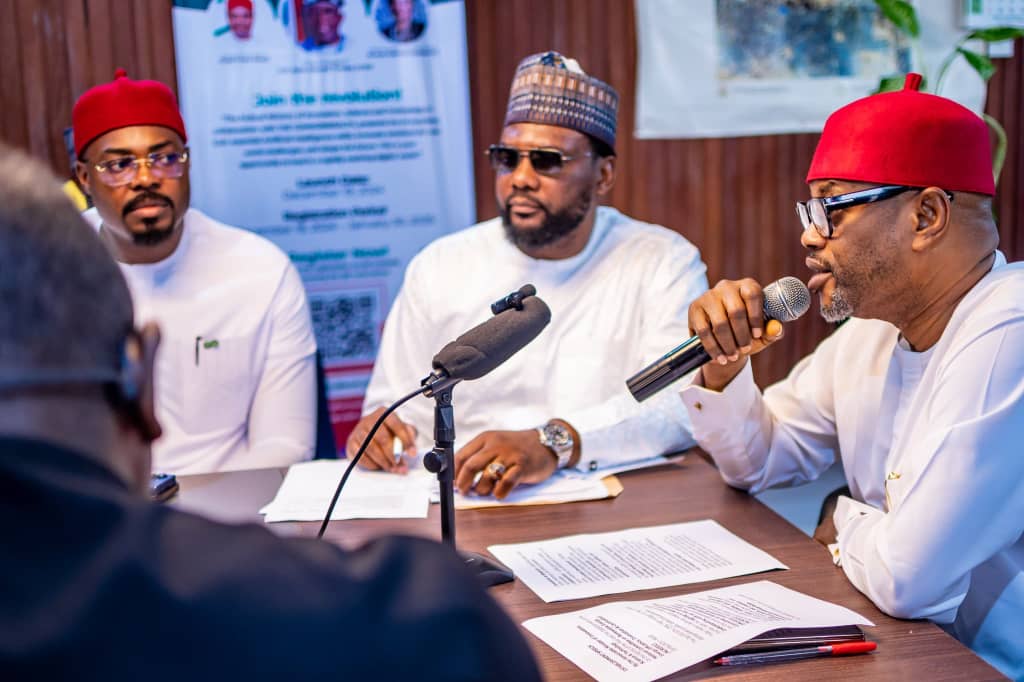In a dramatic turn of events that has sparked international attention, a Nigerian man and his Thai wife were arrested in Bangkok, Thailand, on September 2, 2025, for their alleged involvement in a drug trafficking operation in the city’s Sukhumvit district. The couple, identified as 33-year-old Ukwe Vincent Chisom and 30-year-old Ms. Kesini, were apprehended at their condominium in Samut Prakan province following a meticulous investigation by the Metropolitan Police. The arrests, which uncovered 99 grams of cocaine and other incriminating evidence, have highlighted the persistent challenges of combating drug trafficking in Thailand, the complexities of cross-border crime, and the broader implications for Nigeria’s global image. This article delves into the details of the case, the context of drug trafficking in Thailand, the couple’s alleged activities, public reactions, and the broader societal and legal ramifications, offering a comprehensive exploration of a case that has gripped headlines worldwide.
The Arrest: A Sting Operation in Sukhumvit
The arrest of Ukwe Vincent Chisom and Ms. Kesini unfolded on September 2, 2025, at their residence on Sri Nakarin Road in the Samrong Nuea subdistrict of Samut Prakan province, just outside Bangkok. The couple’s capture was the culmination of a targeted operation by the Metropolitan Police’s Child and Women Welfare Division, which had been conducting surveillance on their activities in the Sukhumvit area, a bustling district known for its nightlife, expatriate communities, and, unfortunately, illicit activities. Acting on intelligence that pointed to the couple’s involvement in drug trafficking, authorities swooped in, apprehending them in their condominium room.
During the raid, police seized 99 grams of cocaine, classified as a Category 2 narcotic under Thai law, along with three mobile phones and other evidence linked to their drug operations. Additionally, assets valued at over 700,000 baht (approximately $21,660) were confiscated, suspected to be proceeds from their illicit activities. Both suspects confessed to the charges, admitting to illegally entering Thailand through natural border crossings in Nong Khai province, a region known for its porous borders with Laos. They also revealed details of their operation, including purchasing drugs in Sukhumvit and distributing them in the Sri Nakarin district, with Ms. Kesini allegedly playing a key role in renting the condominium and managing bank accounts used to receive drug money transfers.
The couple now faces serious charges, including jointly trafficking cocaine by possessing it for distribution without authorization, an offense that Thai law considers a commercial activity promoting drug proliferation. Ukwe Vincent Chisom faces additional charges as a foreign national for entering and remaining in Thailand without permission or with expired authorization. Both have been transferred to the Samrong Nuea Police Station for further legal proceedings, with the possibility of severe penalties, including lengthy prison sentences, given Thailand’s stringent anti-drug laws.
The Context: Drug Trafficking in Thailand
Thailand has long been a battleground in the global fight against drug trafficking, owing to its strategic location in Southeast Asia’s Golden Triangle, a region notorious for the production and distribution of narcotics. The country serves as both a transit point and a destination for drugs like cocaine, methamphetamine, and heroin, which are smuggled through its borders and distributed in urban centers like Bangkok. The Sukhumvit district, where the couple operated, is a hotspot for such activities, attracting a mix of tourists, expatriates, and criminals drawn to its vibrant nightlife and relative anonymity.
Thai authorities have intensified their efforts to combat drug trafficking in recent years, employing advanced surveillance, international cooperation, and harsh penalties to deter offenders. The country’s Narcotics Control Board and police forces regularly conduct raids, targeting both local and foreign networks involved in the drug trade. Foreign nationals, particularly from African countries, have increasingly come under scrutiny, with several high-profile arrests in recent years. This has led to a complex narrative, with some arguing that foreigners are disproportionately targeted, while others point to the involvement of international syndicates exploiting Thailand’s lax border controls.
The arrest of Ukwe and Kesini fits into this broader context, highlighting the challenges of policing cross-border crime in a globalized world. The couple’s alleged use of natural border crossings in Nong Khai to enter Thailand illegally underscores the difficulty of securing Thailand’s frontiers, particularly in areas where smuggling routes are well-established. Their operation, though relatively small in scale compared to major drug cartels, reflects the adaptability of traffickers, who often rely on personal networks and local connections to evade detection.
The Couple’s Alleged Operation
Ukwe Vincent Chisom, a 33-year-old Nigerian national, and Ms. Kesini, his 30-year-old Thai wife, allegedly operated a small but sophisticated drug trafficking network in Bangkok. According to police reports, the couple purchased cocaine in the Sukhumvit area, a district known for its underground drug markets, and distributed it in the Sri Nakarin district, a less central but densely populated area. Ms. Kesini is said to have played a critical role in the operation, renting the condominium where the couple resided and opening bank accounts to facilitate financial transactions related to their drug activities.
The couple’s confession provides insight into their modus operandi. They admitted to entering Thailand illegally through Nong Khai, a common entry point for undocumented migrants and smugglers due to its proximity to Laos and relatively lax border controls. Once in Bangkok, they leveraged the city’s cosmopolitan environment to blend in, with Ukwe allegedly sourcing cocaine from suppliers in Sukhumvit and Kesini handling logistical and financial aspects. The seizure of 99 grams of cocaine, while not a massive quantity, suggests a targeted operation catering to a specific clientele, possibly expatriates or affluent locals in Bangkok’s nightlife scene.
The involvement of a mixed-nationality couple adds a layer of complexity to the case. Marriages between foreign nationals and Thai citizens are not uncommon in Thailand, particularly in urban centers like Bangkok, where diverse communities intersect. However, such relationships have occasionally been exploited by criminal networks, with Thai partners sometimes coerced or willingly involved in illicit activities. In this case, Ms. Kesini’s role in managing bank accounts and renting the condominium suggests an active partnership, though questions remain about whether she was fully aware of the risks or pressured into participating.
Public Reactions: Outrage, Stereotypes, and Debate
The arrest of Ukwe and Kesini has sparked a firestorm of reactions, particularly in Nigeria and Thailand, where the case has been widely covered by media outlets and discussed on social media platforms. In Nigeria, the news has reignited concerns about the country’s global reputation, with many expressing frustration over the recurring association of Nigerian nationals with drug trafficking abroad. “Another Nigerian caught in a drug scandal,” one social media user lamented. “When will this stop tarnishing our image?” Others, however, cautioned against generalizations, arguing that the actions of a few should not define an entire nation.
In Thailand, the case has fueled debates about immigration, crime, and the role of foreign nationals in the drug trade. Some Thai netizens have expressed anger, calling for stricter immigration policies and harsher penalties for foreign offenders. “Foreigners come here and bring trouble,” one comment read, reflecting a sentiment that has surfaced in previous cases involving African nationals. However, others have criticized such rhetoric as xenophobic, pointing out that drug trafficking is a global issue that involves individuals from many countries, including Thailand itself.
The case has also prompted discussions about the dynamics of mixed marriages in Thailand. While many such relationships are genuine, the involvement of Thai women in criminal activities with foreign partners has been a recurring theme in high-profile cases. This has led to stereotypes about Thai women being manipulated or coerced by foreign men, though the reality is often more complex. In the case of Ukwe and Kesini, the couple’s confession suggests a collaborative effort, but the full extent of their motivations and dynamics remains unclear.
The Legal and Social Implications
The legal consequences for Ukwe and Kesini are likely to be severe, given Thailand’s zero-tolerance approach to drug trafficking. The country’s Narcotics Act imposes harsh penalties, including life imprisonment or even the death penalty for serious drug offenses, particularly those involving Category 1 or 2 narcotics like cocaine. The couple’s charges—jointly trafficking cocaine for distribution without authorization—are considered grave under Thai law, as they involve commercial activity that contributes to drug proliferation. Ukwe’s additional charge of illegal entry and residence in Thailand further complicates his case, as it may limit his ability to seek leniency or deportation.
Beyond the legal ramifications, the case has broader social and diplomatic implications. For Nigeria, the arrest adds to a growing list of incidents involving its citizens in drug-related crimes abroad, from India to Cambodia to South Africa. This has fueled calls for the Nigerian government to address the root causes of such behavior, including economic hardship, unemployment, and the lure of quick wealth through illicit means. Some analysts argue that Nigeria’s porous borders, weak anti-corruption measures, and limited opportunities for youth drive individuals to take risks abroad, often with devastating consequences.
For Thailand, the case underscores the ongoing challenge of balancing its role as a global hub for tourism and business with the need to combat crime. The involvement of a Thai citizen in the operation raises questions about how local communities are drawn into international drug networks, whether through financial desperation, coercion, or willing participation. Authorities may face pressure to strengthen border controls, enhance surveillance in urban centers, and collaborate more closely with international law enforcement to dismantle cross-border drug syndicates.
The Broader Context: Nigeria’s Image Abroad
The arrest of Ukwe Vincent Chisom adds to a troubling narrative about Nigeria’s image on the global stage. Over the years, Nigerian nationals have been implicated in high-profile drug trafficking cases across Asia, Africa, and Europe, leading to a perception of the country as a hub for criminal activity. While these cases represent a small fraction of Nigeria’s population, they have had a disproportionate impact on how Nigerians are viewed abroad, often leading to increased scrutiny at borders and in visa processes.
This perception is particularly damaging for the millions of Nigerians living and working legally abroad, who face stereotypes and discrimination as a result of such incidents. The Nigerian government has made efforts to address this issue, including working with foreign governments to crack down on criminal networks and promoting initiatives to improve the country’s image. However, progress has been slow, and cases like Ukwe’s continue to fuel negative narratives.
The case also highlights the need for Nigeria to address systemic issues at home, such as poverty, unemployment, and weak law enforcement, which drive some individuals to engage in criminal activities abroad. Programs aimed at youth empowerment, education, and job creation could help reduce the allure of quick wealth through illicit means, while stronger anti-corruption measures could disrupt the networks that facilitate drug trafficking and other crimes.
The Human Element: A Couple’s Fall from Grace
At its core, the story of Ukwe and Kesini is a human one, marked by choices, risks, and consequences. For Ukwe, a young man from Nigeria, the journey to Thailand likely began with dreams of a better life, whether through legitimate work or, as the evidence suggests, illicit activities. His decision to enter Thailand illegally and engage in drug trafficking reflects the desperation that drives many to take extreme risks, often with the promise of financial reward.
For Ms. Kesini, a Thai citizen, the decision to partner with Ukwe in this operation raises questions about her motivations. Was she a willing participant, drawn by the prospect of financial gain? Or was she coerced or manipulated into joining the scheme? The answers may never be fully clear, but her role in renting the condominium and managing bank accounts suggests a level of involvement that goes beyond passive acquiescence.
The couple’s arrest serves as a cautionary tale about the dangers of engaging in criminal activities, particularly in a country like Thailand, where the consequences are severe. Their story is a reminder that behind every headline about drug trafficking lies a complex web of personal decisions, societal pressures, and systemic failures that drive individuals to cross legal and moral boundaries.
The Path Forward: Challenges and Opportunities
The arrest of Ukwe and Kesini presents both challenges and opportunities for Thailand and Nigeria in their efforts to combat drug trafficking. For Thailand, the case highlights the need for continued vigilance in policing urban centers like Bangkok, where drug networks often operate under the radar. Strengthening border controls, enhancing cooperation with international law enforcement, and addressing the socioeconomic factors that draw locals into criminal activities are critical steps.
For Nigeria, the case underscores the urgency of addressing the root causes of its citizens’ involvement in international crime. Economic reforms, job creation, and education initiatives could provide alternatives to illicit activities, while stronger partnerships with countries like Thailand could help disrupt cross-border drug networks. The Nigerian government may also need to invest in public awareness campaigns to deter citizens from engaging in criminal activities abroad, emphasizing the severe consequences and the damage to the country’s reputation.
On a broader level, the case highlights the importance of international cooperation in combating drug trafficking. The collaboration between Thai police and international intelligence sources in this case demonstrates the power of shared resources and information in tackling global crime. Expanding such partnerships could lead to more effective strategies for disrupting drug networks and holding offenders accountable.
Conclusion: A Case That Resonates Beyond Borders
The arrest of Ukwe Vincent Chisom and Ms. Kesini in Bangkok is more than just a news story—it’s a window into the complex world of drug trafficking, international crime, and the human stories behind the headlines. For Thailand, it’s a reminder of the ongoing battle to keep drugs off its streets and the challenges of policing a globalized society. For Nigeria, it’s another chapter in the struggle to reshape its global image and address the systemic issues that drive its citizens into crime abroad.
As the couple awaits their fate in the Thai legal system, their story serves as a cautionary tale about the risks of chasing quick wealth through illicit means. It also underscores the need for governments, communities, and individuals to work together to address the root causes of drug trafficking, from poverty and inequality to weak law enforcement and porous borders. In a world where crime knows no borders, the fight against it requires a united effort—one that balances punishment with prevention and justice with compassion.







